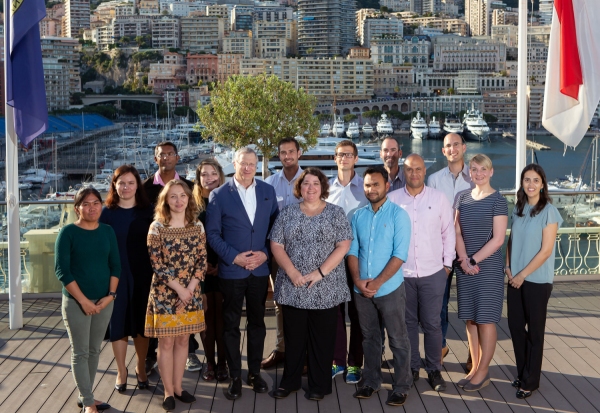A multinational team of hydrographers, geologists and ocean mapping experts, including a NIWA marine geologist, has won the US$4 million Shell Ocean Discovery XPRIZE for the development of an autonomous system able to map the seafloor over long periods of time.
Marine geologist Evgenia Bazhenova works as data manager for the Seabed 2030 project which has its South and West Pacific centre based at NIWA in Wellington. The project is an ambitious programme to map the earth’s entire seabed by the year 2030, which aligns with the UN Decade 2021-2030 of Ocean Science for Sustainable Development.
Before starting at NIWA in March, Evgenia was a member of the GEBCO-Nippon Foundation Alumni Team, which entered and took top honours in the high-profile, three-year-long competition.
The team distinguished themselves by designing and building an un-crewed surface vessel from scratch, equipped with an echosounder and capable of carrying an autonomous underwater vehicle (AUV) system.
It wasn’t all plain sailing. Evgenia says the team had to deal with a hurricane-induced venue switch in early trials, develop (and test) autonomous controls to launch and retrieve the AUV and figure out a way to process terabytes of data in double-quick time.
The final stage of the competition was held late last year in southern Greece, with teams taking part in a 24-hour ocean mapping challenge. Each team was given 500 square kilometres of ocean floor to map – 15-40 nautical miles off the coast. It all had to be controlled remotely, from shore.
Evgenia and the GEBCO-Nippon Foundation Alumni Team managed to map 278 km2, far more than any other team. After 48 hours spent processing 1TB of data, they were able to deliver the competition organisers a composite bathymetric map of the surveyed area, side-scan mosaic as well as ten high-resolution HISASimages.
The Team’s US$4 million first place prize money is to be reinvested by their main sponsor, the Nippon Foundation, into the development of future ocean mapping initiatives, as well as into furthering the goals of the Seabed 2030 project.

